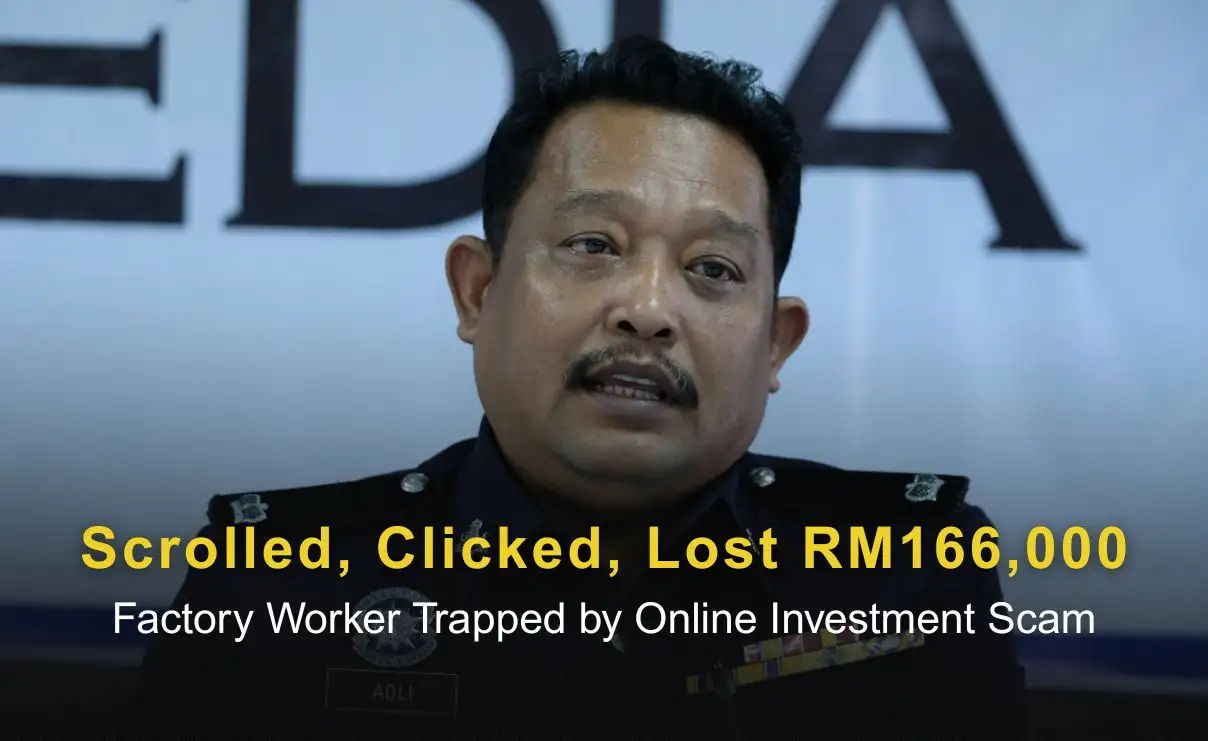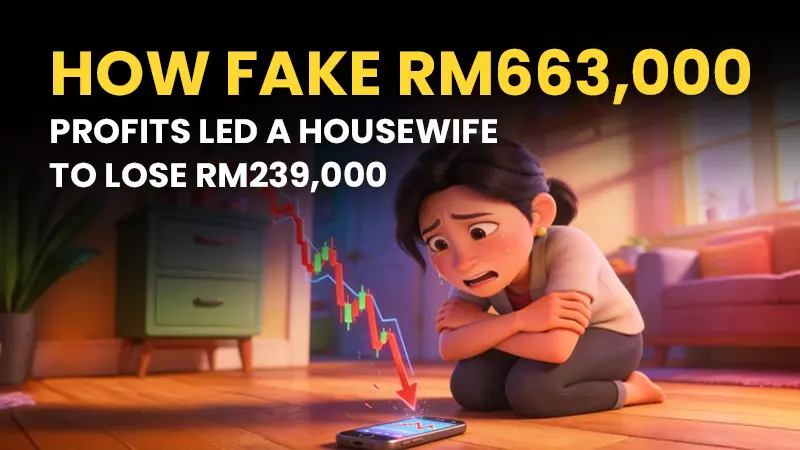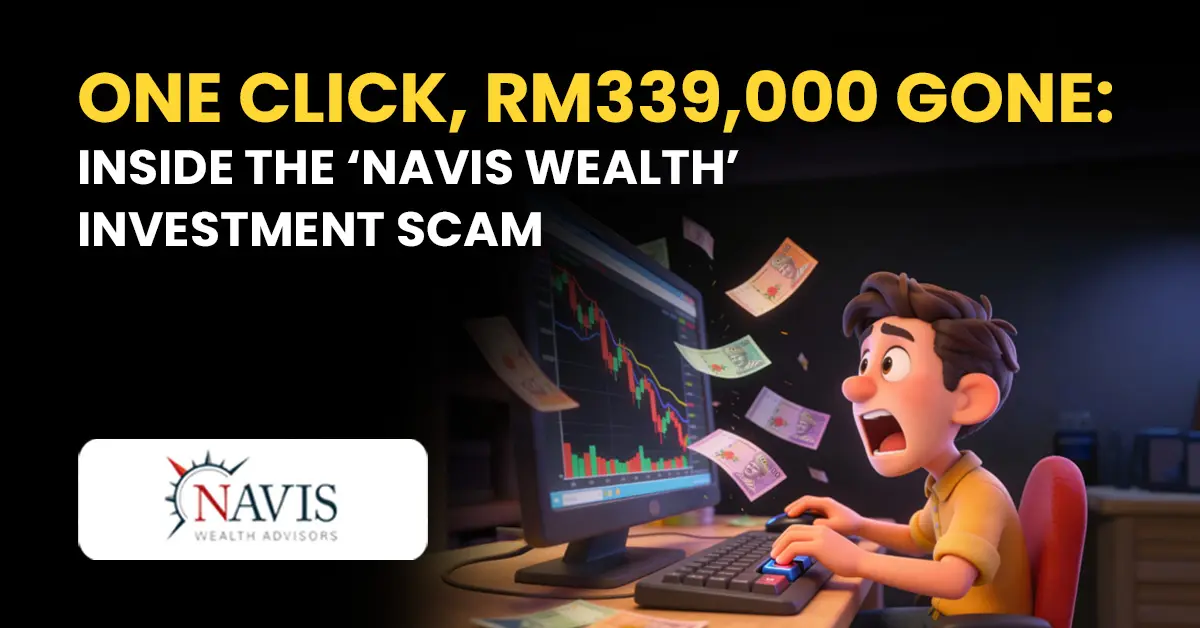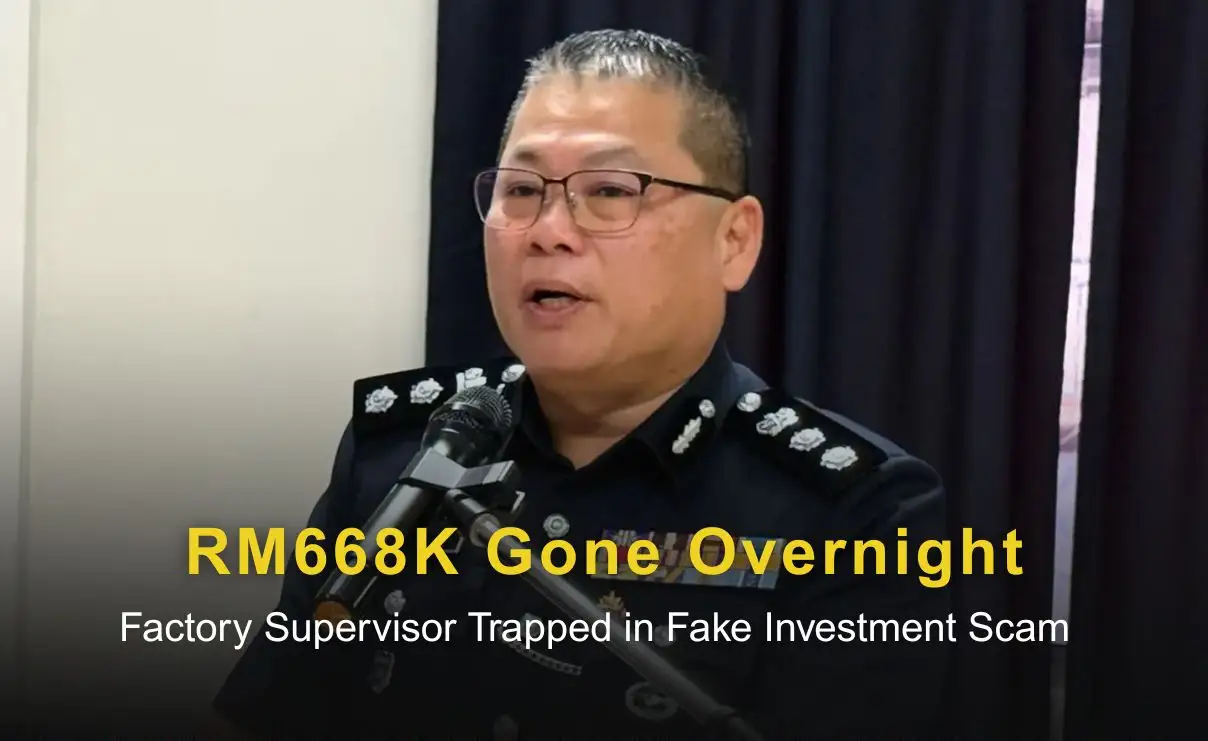Scrolled, Clicked, Lost RM166,000: Factory Worker Trapped by Online Investment Scam
A woman employed at a cake factory has lost her life savings after being lured into a fictitious investment scheme by a man she met on social media
简体中文
繁體中文
English
Pусский
日本語
ภาษาไทย
Tiếng Việt
Bahasa Indonesia
Español
हिन्दी
Filippiiniläinen
Français
Deutsch
Português
Türkçe
한국어
العربية
Abstract:Give me your poor, your shadow bans, and your hostile screenshots.
The problem of toxic content on social media came to a head on Wednesday, in a surreal sequence of events.The US refused to sign an international agreement aimed at stamping out terrorist and extremist content online.Instead, the Trump administration launched an online tool to collect examples of people being censored on social-media platforms because of their political views.It's an absurd contortion of the free-speech debate that shows how far apart the country is.Visit Business Insider's homepage for more stories.Americans finally agree on something: there's a big problem with the stuff that people can say and do on social media.Unfortunately, the country isn't looking at the same news feed.After years of misogynistic and racist trolling on platforms like Twitter and rampant, dangerous conspiracy theory videos on YouTube, the situation reached its breaking point in Christchurch, New Zealand, in March.The horrific massacre of 51 people, broadcast live on Facebook, galvanized society to finally take action. On Wednesday more than a dozen countries, as well as companies like Facebook and Google, signed the “Christchurch Call” — a somewhat vague but well-intentioned agreement to work to stamp out extremist and terrorist content online.France, Canada, India, and 15 other countries linked arms to declare their commitment to stop something that everyone agrees is repugnant. That is, everyone except the US.For reasons not entirely clear, the US said it was “not currently in a position to join the endorsement,” and cited free speech.Lest anyone think the US government is blind to the social-media problem though, the Trump administration unveiled its own homegrown effort to ensure a healthy online discourse.In a surreal sequence of events on Wednesday, hours after news emerged of the US rejection of the Christchurch accord, the White House launched an online tool to collect examples of political censorship and bias against American users on social media.Read more: Why breaking up Facebook is actually a terrible idea“SOCIAL MEDIA PLATFORMS should advance FREEDOM OF SPEECH,” the online form, posted on an official White House web page read. “Yet too many Americans have seen their accounts suspended, banned, or fraudulently reported for unclear 'violations' of user policies. No matter your views, if you suspect political bias caused such an action to be taken against you, share your story with President Trump.”President Trump, one of Twitter's most followed and prolific users, believes that conservatives are being muzzled on social media. That's not fair.Of course, freedom of speech, in a constitutional sense, does not apply to private forums like Facebook or Twitter. The First Amendment prohibits the government from censoring or punishing people for what they say or write. Private entities, however, can muzzle, or give a microphone to, whomever they want.One of the big exceptions however, is speech that's considered dangerous or harmful. In those situations, the government can step in and clamp down.Until Wednesday, most reasonable people would have thought that exception applied to things like livestreamed massacres. Now we know the real pressing issue, according to Trump. The one that rises to such a level that it demands the government step in and regulate speech in the private sphere, is how unfairly Alex Jones and Milo Yiannopoulos have been treated.
Disclaimer:
The views in this article only represent the author's personal views, and do not constitute investment advice on this platform. This platform does not guarantee the accuracy, completeness and timeliness of the information in the article, and will not be liable for any loss caused by the use of or reliance on the information in the article.

A woman employed at a cake factory has lost her life savings after being lured into a fictitious investment scheme by a man she met on social media

A Batu Pahat housewife lost RM239,000 after being lured into a fake online investment scheme that displayed fabricated profits of RM663,000.

A Malaysian woman has lost more than RM339,000 after falling victim to a scheme operated under the name “Navis Wealth”.

A factory supervisor lost RM668,800 after falling for a fake share investment scheme that used fabricated profits on a cloned trading app to gain his trust, before blocking withdrawals and disappearing with the funds.
